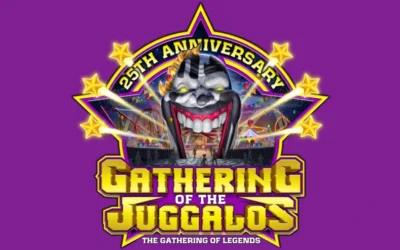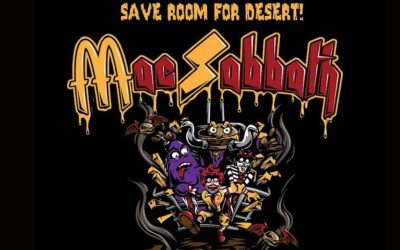Senators Amy Klobuchar (D-MN) and Mike Lee (R-UT) issued a blistering response to Live Nation’s evasion of key questions posed during last month’s Senate Judiciary Committee hearing in a letter published Thursday, asking the Department of Justice to continue its ongoing investigation of Live Nation and Ticketmaster’s alleged anticompetitive conduct. The senators organized the bipartisan hearing held in January, which featured numerous witnesses outlining extensive allegations of monopolistic behavior by Live Nation Entertainment and its ticketing subsidiary, while executive Joe Berchtold attempted to deflect all blame for consumer issues in the space to ticket resale operators.
“For too long, Live Nation and Ticketmaster have wielded monopoly power anticompetitively, harming fans and artists alike,” the letter to Assistant Attorney General for the Antitrust Division Jonathan Kanter reads, in part. ““We recently held a bipartisan hearing in the Senate Judiciary Committee at which the President of Live Nation testified under oath, as did other industry participants, including an artist, a secondary market ticketing company, a promoter, and industry experts…As an initial matter, other than Live Nation’s executive, every witness at our hearing testified that Live Nation is harming America’s music industry.”
“We asked Live Nation a number of questions about competition both at the hearing and afterwards, but it has largely failed to answer them,” the senators continued. “Live Nation’s responses amount to “trust us.” We believe that is wholly insufficient. We thank you for your prompt attention to these matters and encourage the Antitrust Division to take action if it finds that Ticketmaster has walled itself off from competitive pressure at the expense of the industry and fans.”
In the wake of January’s hearing, Live Nation and Ticketmaster have continually attempted to deflect blame for consumer issues to alleged bad actors on the ticket resale marketplace, claiming that ticket brokers and “bots” are the true issue, rather than their own anticompetitive actions or failures. Berchtold held that line under withering questions at the hearing in Washington, and the company issued a flurry of statements on Thursday attempting to bolster that framing of the massive issues that ticket-buying consumers face today.
In one, the company suggested the introduction of legislation designed to bring what it considers “fair” ticketing for consumers nationally. It recommends the introduction of several policies that would in practice turn Live Nation and Ticketmaster (as well as other venue and promoter-side companies) into the regulators of the entire ticketing industry, both primary and resale, eliminating any consumer rights over tickets they have purchased.
In the other, the company issued line-by-line responses to numerous direct questions posed at the January hearing, penned by recently hired antitrust litigator and new Live Nation Executive Vice President Daniel Wall. Predictably, the document is full of suggestions that ticket resale is the problem, as well as the evasion of substantial portions of the actual questions posed – a fact which the letter from Sens. Klobuchar and Lee points out:
We asked Live Nation a number of questions about competition both at the hearing and afterwards, but it has largely failed to answer them.
- We asked how many concerts per year were both promoted by Live Nation and ticketed by Ticketmaster, and the company said (without having asked for an extension of time) that it was “unable to determine” the answer “in the time available.”
- We asked Live Nation to tell us for how many of the top 100 arenas Live Nation provides ticketing services, and the company provided no response.
- We asked how many venue contracts Ticketmaster lost to competitor Paciolan in recent years, and the company provided no response.
- We asked whether Live Nation has entered into any agreements with venues where the contract term for ticketing services is longer than five years, and the company provided no response.
- We also asked Live Nation if it would commit to having third party audits to confirm that it is neither threatening to retaliate or actually retaliating against venues that select other ticketing services providers after the consent decree expires. Live Nation refused to do so. Instead, it said “Live Nation does not need to be subject to a consent decree or any similar legal obligation to refrain from retaliating against a venue for using another company’s ticketing services, and from threatening to retaliate for such choosing of another ticketing company.”
Live Nation’s responses amount to “trust us.” We believe that is wholly insufficient. We thank you for your prompt attention to these matters and encourage the Antitrust Division to take action if it finds that Ticketmaster has walled itself off from competitive pressure at the expense of the industry and fans.
Most interestingly, it appears that part of Live Nation’s arguments against allegations of monopolistic behavior are that it wouldn’t even matter if it had “100% market share” so long as it didn’t result on prices being held above competitive levels. The below comes from the bottom of page 16 and beginning of page 17 in the Live Nation response document.
The various data points we are asked to confirm are what critics like to cite as evidence of Ticketmaster’s alleged monopoly power. We respectfully dispute the utility of these arguments for several reasons. First and foremost, monopoly power is properly understood as the ability of a firm to maintain prices above competitive levels because the firm is insulated from competition from new entrants or expansion by existing competitors. It has long been held that even a 100% market share will not prove monopoly power (even assuming the “market” is defined properly) if the firm lacks the ability to maintain prices above competitive levels. That perspective is necessary because some firms have very high market shares, “monopoly shares” even, on the merits of their products and services, or sometimes simply because they established a large share in the absence of meaningful competition.
This document was released on the same day as Live Nation’s 4th quarter earnings and full year report for 2022. Those earnings showed more record-shattering numbers for the company, including the fact that ticket revenues have surged by nearly double the rate that ticket quantities have surged in the post-pandemic era, meaning that price surging is being done on an industrial scale as a matter of business policy.
At the same time, the institution of floor pricing policies on its own ticket resale marketplace leads to consumers paying a dramatically higher price than the market otherwise would dictate for the same event. A Bruce Springsteen show in Tulsa saw resale tickets available through Ticketmaster for no less than $59.50 plus fees in days leading up to the concert. Meanwhile, on other marketplaces, the same tickets were listed for between $5-10 after fees. This means that Live Nation/Ticketmaster policies were forcing consumers shopping for tickets through their system to pay ten times what the ‘competitive level” pricing was for that event.
The letter from the Senators also points out that every person who testified at the hearing in January laid out claims reflecting how Live Nation and Ticketmaster’s business harms both competitors and consumers. They outlined numerous such instances for the DOJ’s consideration in its investigation:
-
The Founder and CEO of Seat Geek testified that Ticketmaster now uses even longer exclusive agreements with venues, in some instances as long as ten years.
-
Clyde Lawrence, lead singer in the band Lawrence, testified that on a $30 ticket, Live Nation adds $12 in fees, and of that $42 price the customer pays, only $12 goes to the band before accounting for its cost of the tour.
-
A competing promoter, Jam Productions, testified that Live Nation attempts to lock up talent so competitors cannot produce concert tours. He also noted that 87 percent of Billboard’s Top 40 Tours in 2022 were ticketed by Ticketmaster in the U.S. and that Ticketmaster has exclusive ticketing contracts for more than 85 percent of the nation’s NFL, NHL, and NBA teams. (While Live Nation contested the accuracy of this data, it failed to provide any alternative data.)
-
A public policy expert at the James Madison Institute testified that Ticketmaster’s market dominance allows it to harm consumers through charging service fees and demanding exclusivities. In particular, he noted that the service fees can be greater than 30 percent and “are tacked on at the very end of the process, on the very last screen before purchasing,” raising questions about deceptive pricing strategies.
-
A former DOJ lawyer testified that the conduct remedies in the 2010 consent decree from the Live Nation-Ticketmaster merger investigation have failed and that such failures constitute hard evidence of the firm’s monopoly power. She also testified that “the company still has the power to silence market participants who fear its retaliation.”
Altogether, the letter showed that the legislators who grilled Mr. Berchtold over his companies policies are hardly satisfied with the answers they have received. All signs point to a legislative showdown in coming months where Ticketmaster and Live Nation are going to pit their enormous lobbying war chest against the overwhelming consumer sentiment and clear desire of legislators to reign in their market power.
When the dust settles, the question is going to be whether the already powerful company from California will be broken up, or at least subject to stronger regulations that curb its ability to dominate competitors in both the primary and resale ticket markets – or will its lobbying might pave the way to a system where they act as judge, jury, and executioner of their secondary ticket market competition through the passage of their own set of ticketing reforms.




